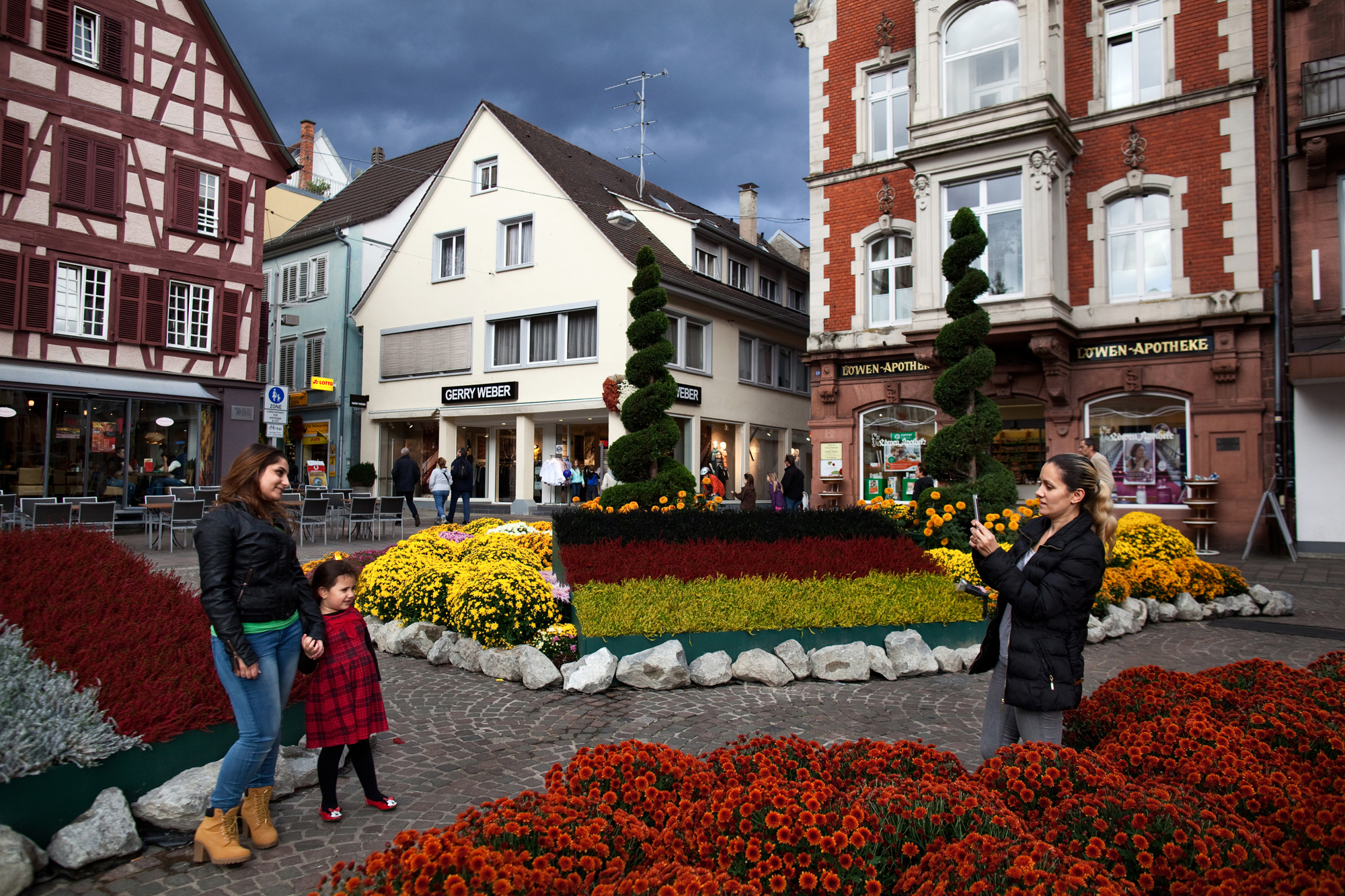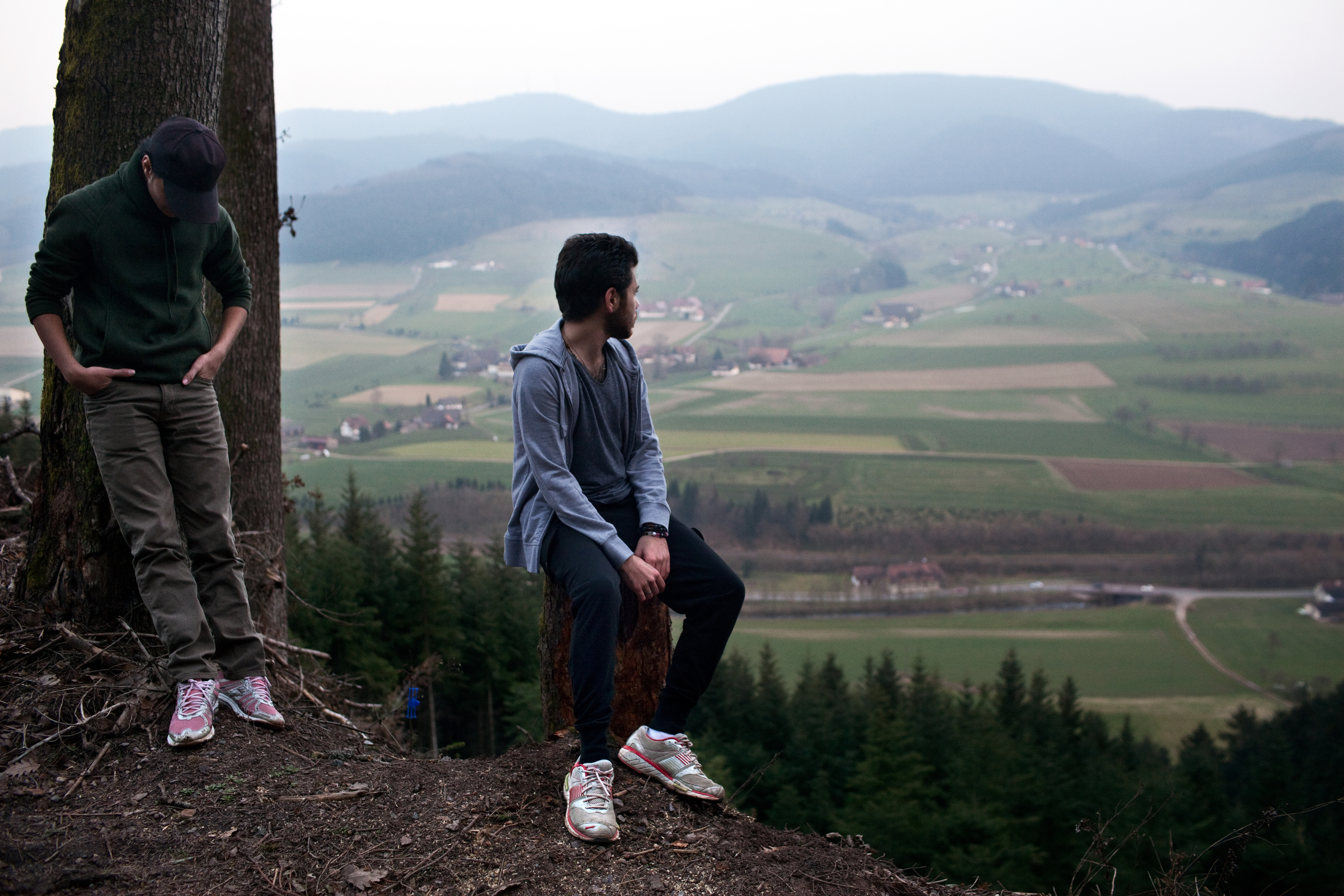
SCOTT SIMON, HOST: More than 3 million Syrians have fled their country's civil war. Many families are separated as they flee to Europe with the help of smugglers and fake papers. Joanna Kakissis tracked three siblings from Damascus as they tried to reunite in Germany.
JOANNA KAKISSIS: Wisam al-Aydi's a gentle 51-year-old dad in a baseball cap, and we're talking in his family's room at a refugee camp in southern Germany. His family's originally Palestinian, but he grew up in Syria with eight siblings. The extended family shared an apartment building in Damascus. They barbecued on the roof. Their children played together, and they thrived.
WISAM AL-AYDI: (Through interpreter) In Syria, our whole family worked together. We opened a bakery, a clothing shop, a jewelry shop, two gas stations.
KAKISSIS: Wisam ran the gas stations. He was especially close to his younger brother, Mwafak, and sister, Manale. But the war would shatter that life. In 2012, with bombs destroying their neighborhood, they each paid thousands of dollars to smugglers to get them and their families out of Syria, but they were separated.
Mwafak's only option was Turkey because he had no identification. The regime had stripped him of it years ago after a jail term for political activism. Manale went to Lebanon, and Wisam flew to Egypt.
WISAM AL-AYDI: (Through interpreter) When we left after our home was first bombed, we thought maybe we can travel for a couple of years and then return when things calm down. We really thought we could build our home again in Syria.
KAKISSIS: But while they were traveling, their home was bombed again. It's now burned and gutted. Wisam shows me a cellphone photo.
WISAM AL-AYDI: (Through interpreter) This was our bedroom, and I think that might be our bed. That was our living room. This house carried all our memories - my son's violins, the children's things, all of our life. So many years of work all gone.
KAKISSIS: Since then, the siblings have been trying to get back together. They decided to reunite in Germany. One of their grown children had gotten there from Egypt, traveling by boat to Italy and then by land. Wisam made the boat trip from Egypt and passed Italy before declaring asylum in southern Germany.
Mwafak rode a small, crowded boat from Turkey to Greece, but it took him four attempts to board a plane to Germany using a fake ID. He arrived in northern Germany early last year and is working on his German.
MWAFAK AL-AYDI: (Speaking German).
KAKISSIS: Mwafak's almost 50. He studies his new language every day. He's got to learn German to get a job. He ran a jewelry store in Damascus.
MWAFAK AL-AYDI: I don't know what I can I do in Germany.
KAKISSIS: It wasn't until October that the three siblings were all in Germany. Manale was the last to arrive. Forty-six years old, she had advanced cancer and was desperate for treatment. She'd paid a smuggler $15,000 for a fake Spanish passport and a plane ticket to southern Germany. But police, spotting her fake documents, detained her on arrival. A few hours later, she's at a hospital. Her brothers aren't there yet, but an officer escorts in two nephews, Wisam's sons. I'm with them. And as they go to her bed, she cries out.
MANALE AL-AYDI: (Crying).
KAKISSIS: "Please, please don't leave me alone," she says, clutching the boys. "I don't want to die." Later, she tells me she came to Germany to be with her brothers, her family.
MANALE AL-AYDI: I came to Germany because I have two brothers in Germany - my family. I want to go live with my family.
KAKISSIS: Mwafak arrives the next day. He's holding fresh lemons to steep into hot tea for his sister. His eyes glisten when he sees her. She was a formidable bank manager in Damascus. Now she looks frail and scared. Mwafak is taking her to a hospital where his family is, more than 10 hours away by train.
MWAFAK AL-AYDI: We will go to hospital with my family, and I think she will be good.
Good?
KAKISSIS: Wisam, the third sibling, is now only three hours away. His family moved cross-country from the refugee center into a subsidized apartment. I visit him at his new place. The family's settling in.
DALAA AL-AYDI: (Counting in German).
KAKISSIS: And his 4-year-old daughter, Dalaa, is dancing and counting in German. But Wisam notices she's forgetting Arabic and Syria.
Dalaa, what do you remember about Syria?
DALAA AL-AYDI: Takh, takh. Takh, takh.
KAKISSIS: Takh, takh - that's the sound of gunfire, her only memory of Damascus. For NPR News, I'm Joanna Kakissis.




